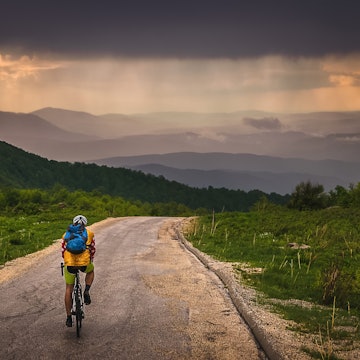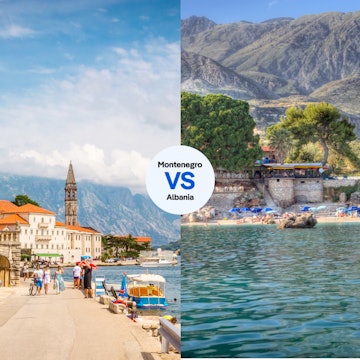

The Bay of Kotor. Image by KLMircea / CC BY-SA 2.0
With a beautiful coastline backed by a whole heap of craggy mountains, Montenegro has an abundance of scenic driving routes. Whether on the main highways or on single-lane back roads, expect ‘wow’ and white-knuckle moments in equal measure, with breathtaking views over every precipitous drop. Driving in Montenegro is not for the faint of heart, but it’s a wonderful experience.
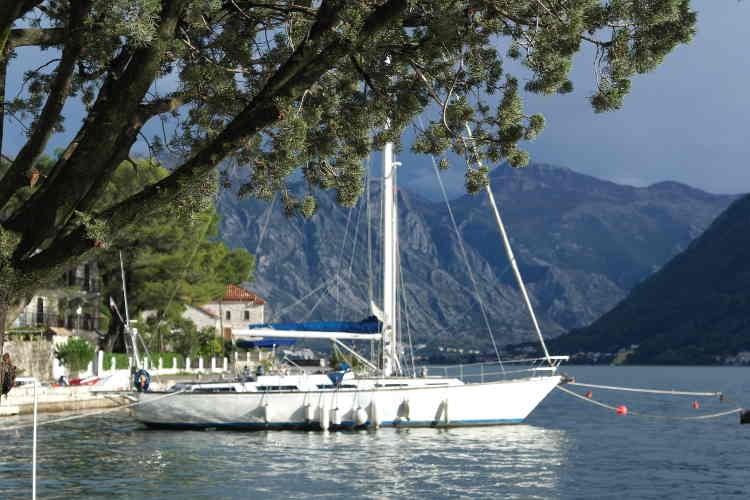
The Bay of Kotor
Let’s start with a route that’s easy to drive, unavoidable and unforgettable. For visitors flying into Dubrovnik Airport, the road circling the Bay of Kotor is likely to be your first introduction to Montenegro – and what a spectacular one it is. It starts pleasantly enough, shadowing the coastline as it passes the sprawl of Herceg Novi on the outer edge of the bay. But it’s once you pass the narrow strait and round the headland into the inner bay that the beauty meter gets close to bursting.
Suddenly you’re enfolded in a mountainous embrace, hemmed in between the rocky slope and the steely grey water. Two perfectly picturesque islands complete the scene, each crowned with a church. There are plenty of great spots to stop along the way: Morinj is home to one of Montenegro’s best restaurants, Risan has remarkable Roman mosaics, while Perast is tightly packed with baroque churches and palaces.
Eventually the incredible walled town of Kotor comes into view, its fortifications arcing up the mountainside. Most travellers stop here, but the road continues on, narrowing considerably after leaving the town. It follows the water’s edge, passing a scattering of ancient villages before rounding the corner and broadening out again at Lepetane. Here you can either catch the car ferry back across the bay or continue on to Tivat and the highway to Budva.
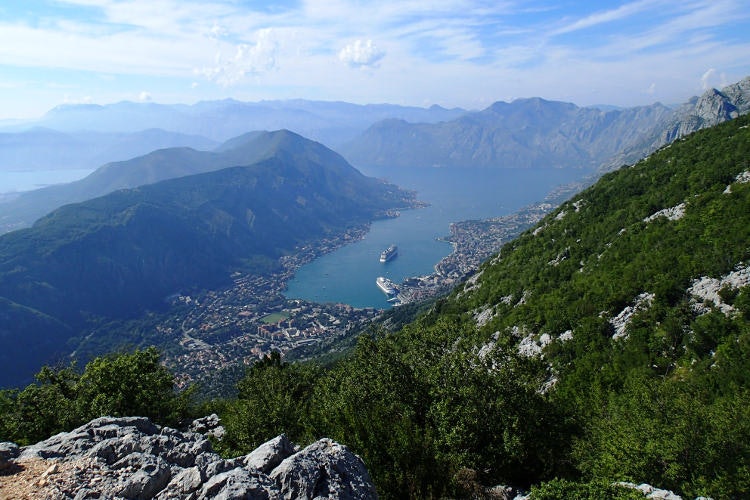
Kotor to Cetinje
The back road leading from Kotor up the slopes of Mt Lovćen to the old Montenegrin heartland is quite possibly the most memorable of any in the country – both for the sublime views and for the hair-raising bends and sheer drops.
After zigzagging gently up the lower slopes for several kilometres, you’ll reach 17km of good but narrow road snaking up 25 hairpin turns, each one revealing a vista more impressive than the last. At the top, the views stretch right over the bay and all the way to the sparkling blue Adriatic beyond.
From here you can choose to take the better road through the historic village of Njeguši and on to the former royal capital, Cetinje. Or you can turn right and follow a rough road through the heart of Lovćen National Park to the spectacular Njegoš Mausoleum, sitting atop the mountain’s second-highest peak (Jezerski Vrh, 1657m). This latter road improves considerably as it leads through the park hub at Ivanova Korita and continues down to Cetinje.
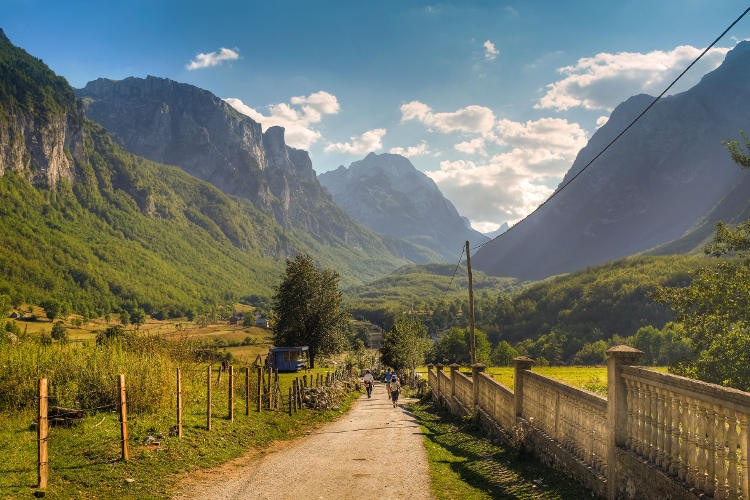
Podgorica to Andrijevica
Heading north from the Montenegrin capital Podgorica, the highway gets progressively more precarious as it follows the Morača River into a nearly perpendicular canyon up to 400m deep. Here you’ll experience Montenegrin driving in all its daredevil glory, with cars overtaking at speed on blind corners. After the gorgeous canyon recedes you’ll eventually come to the Morača Monastery. It’s worth stopping to admire the frescoes and to let the peaceful setting soothe your no-doubt frayed nerves.
Further along the highway, after a spectacular mountain-hugging switchback, a bridge crosses the river into the ski-resort town of Kolašin. You could stop here, or continue on a back road up and over the shoulder of the Bjelasica massif to the unassuming town of Andrijevica. The drive is phenomenal, with views to the jagged peaks of the Prokletije mountain range in the distance. Those wild ‘accursed mountains’ form the border with Albania.
From Andrijevica there’s a pleasant drive on a rural highway through Berane and on to Mojkovac, where you can start on the following route.
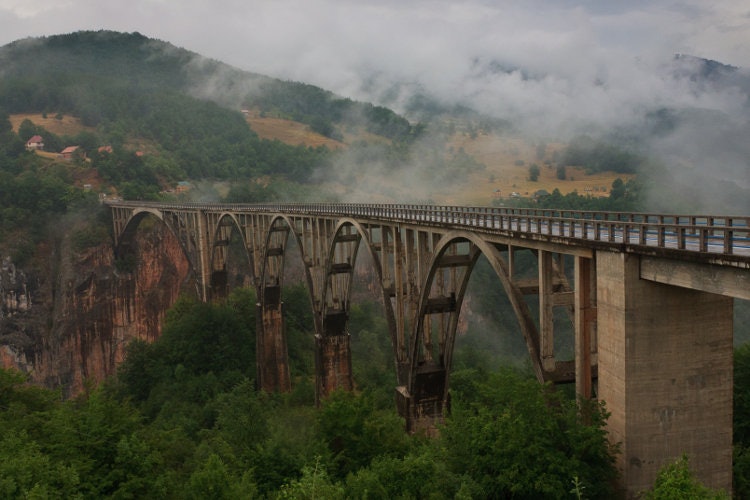
Tara Canyon to the Piva Canyon
This route heads clear through the heart of mountainous Durmitor National Park, from one spectacular river canyon to another. Starting at Mojkovac, the road follows the Tara River and quickly enters the national park. It continues alongside the verdant river canyon to the historic and elegant Tara Bridge. Rather than crossing the bridge, continue on the road to Žabljak. Take extra notice of your speed on this stretch as the traffic police are ever-present and it doesn’t pay to give them an excuse to pull you over; some motorists report being hit up for bribes.
Although Žabljak is a scrappy sort of town, it’s worth stopping for the night to take a walk in the national park. The following morning, start out on the main road towards Nikšić but turn right shortly after leaving Žabljak and take the back route to Plužine. This narrow mountain road is impassable as soon as the snows fall, but at other times it’s a pretty and quiet byway, passing several of the little glacial lakes known in these parts as ‘mountain eyes’.
The road eventually comes out near Plužine, where an impressive 220m-high hydroelectric dam harnesses the power of the Piva River. From here, the main highway leads south to Montenegro’s second-biggest city, Nikšić, and follows the river north to Bosnia. The road itself is a remarkable piece of engineering, clinging to the canyon walls and passing through 56 short tunnels hacked out of the stone.









